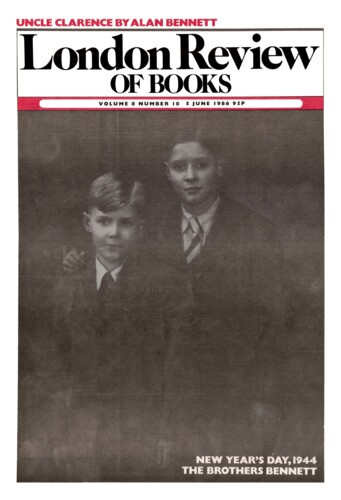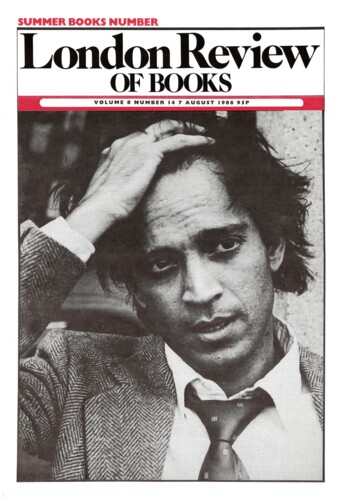Young Ones
Hugh Barnes, 5 June 1986
At the height of Punk I was still at school, which always seemed to me a rather melancholy fact – not least because one’s authority as a rebel was brought into question by having to attend lessons and the like. Out of hours, we worked hard to make good our sense of disadvantage, and a competition, which was incidental to following our favourite groups around London, started up among my circle of friends. At the end of each night out, we used to run amok, hoping to catch a glimpse of our idols. Fashions in idolatry change, whenever a purge takes place or the latest style is jettisoned, but even so I doubt whether the way we brushed with greatness will ever ‘come back’: we were surly and obnoxious, and we practised curling the lip. (The curled lip, rather like a masonic handshake, doubled as a greeting between initiates and a message in code.) We also vied with each other to incur our heroes’ displeasure, which was measured in rebukes. The practice of behaving discourteously towards people one actually looked up to derived, I suppose, from a misconceived notion of the egalitarian spirit of Punk, its élan vital. The best I ever managed was a warning not to be such a nuisance from someone who, for a brief period, played drums with The Clash: however hard I tried to be outlandish, I was generally ignored. But there was one lad who stood outside a recording studio for an afternoon in the rain because the Sex Pistols were known to be inside. At last Sid Vicious emerged, and our friend launched into his adoring volley of abuse. Sid took one look, snarled and told him to fuck off. Back at school the boy became an instant celebrity.’



